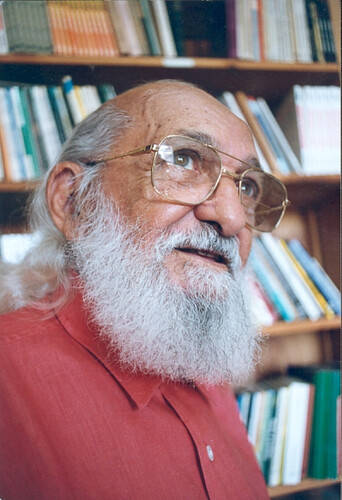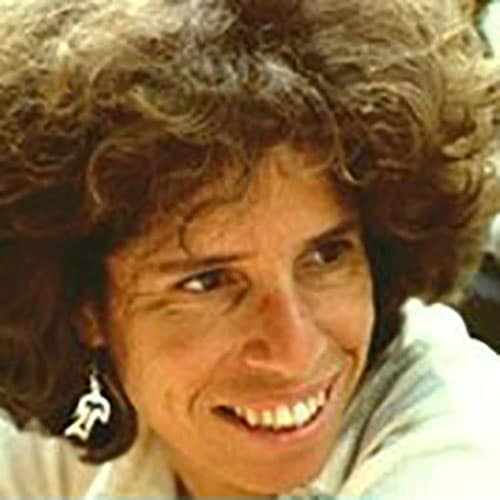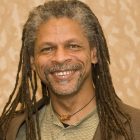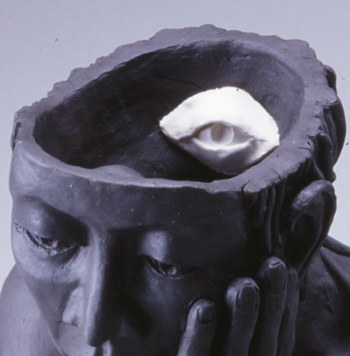I have been engaging with the topics of power and privilege, in one form or another, since 1989. Over these years, I have been to many workshops, I have engaged in academic study, and I have also led many workshops on these and related topics. Over these many years, the terms have changed and some of the approaches have changed. For the most part, almost everywhere and every time, I have found conversations across power differences repeatedly unsuccessful. This is true of conversations I have seen others facilitate that I was witness to or when I participated in a led group; those conversations that I have facilitated over the many years that I have done so myself; and those conversations that I have been part of where I myself am party to a challenge related to power differences, on both sides of the power difference.
What I mean when I say “unsuccessful” is quite specific. I haven’t seen people who have experienced impacts across power differences to be heard across those differences, only within their own groups. I haven’t seen people with access to resources, relational power, or societal privilege leaving such conversations with growing capacity or insight. Instead, what I have more often seen is people leaving with righteous indignation, full of guilt or shame, hopeless, angry, defensive, or dismissive of the whole effort, and this isn’t an exhaustive list.
I recently wrote an article called “Grappling with Our Own Power” which touches on some of the reasons for these outcomes. They are all systemic and very rarely about anyone’s individual failings. While this understanding is shared by many, the ways that the conversations happen don’t systematically address those challenges, and thus they continue.
The key dilemma that I see is that from any position within the power map of the world, or the power map within any organization, we have obstacles on the way to holding together the reality of how difficult it is to come together and make change together when we have power differences.
It’s very difficult for all of us, when we are in a position that confers any privilege to us, to see that this is happening and is systemic. Instead, it’s easy to fall into one of the four negative ways of relating to our privilege that I describe in a blog post called “You’re Not a Bad Person: How Facing Privilege Can Be Liberating: denial, guilt and shame, defensiveness, and entitlement. Instead, we can support ourselves and each other to shift from denial to owning our privilege, from guilt and shame to understanding the systemic context that gives us the privilege, from defensiveness to learning through feedback, and from entitlement to stewarding our resources for the benefit of all.
It’s also very difficult for all of us, when we are in a position with less power and privilege than others, to see the degree to which we internalize, usually through trauma, the systemic messages about us, about people with more power, and about life as a whole. This then means that we can easily fall into an either/or: we either silence ourselves or we speak about these topics without capacity to care for those who have more power or privilege.
Here’s a short summary of some of what I believe can support us all in transforming this predicament.
Understanding of patriarchal roots

Lorraine Bonner is a Black woman sculptor, writer, and retired physician. Her work investigates trauma, from the personal to the ecological, in the belief that it is the role of art to help us see through the delusions of scarcity and supremacism in order to bring about change. She likes to think that at some point we will move beyond the trauma saturated social definitions of Black and White, and see ourselves as the beautiful multihued species that we are, accepting with gratitude our place within the interconnected web of all of Earth’s beings. You can find her work at www.lorrainebonner.com and at www.MultiHuedHumanity.com.
Any analysis of power, privilege, oppression, or anything else that divides people remains incomplete without tracing it to its patriarchal roots of scarcity, separation, and powerlessness. Without it, we run the risk of making racism, for example, be about white people, sexism about men, and so on and so forth. In my deep exploration over decades, I have found there is nothing essential about any group of people that makes them more or less capable of oppressing others. Let us not forget that, for the most part, it’s women who pass on patriarchal conditioning to their children.
Without conscious and active attention to the patriarchal roots of oppression, we are more than likely to use patriarchal methods (blaming, shaming, separation, fighting against, harshness, urgency, overstretching, and more) in our attempts to liberate ourselves and each other.
A framework of liberation
My three sources for understanding liberation in this area are Paulo Freire, Erica Sherover-Marcuse, and Victor Lee Lewis. The gist of the liberation perspective is that the only liberation possible is liberation for all. Anything less than that is within patriarchal separation.
This has different meanings for any of us when we are in a position of privilege and when we are in a position of lack of access to power and resources. For those of us with access to power and resources, or any dimension of our existence where that is true for us, the invitation of liberation is to disentangle ourselves from the comforts that privilege affords us and to come to a place of being able to actively feel the cost of our comforts to others and the planet. It is often a long and hard journey that is impossible, as far as I can tell, without pain and discomfort. Coming to see that our needs are met at the expense of others is something that goes directly against the training we receive in relation to whatever privilege we have that makes it possible for us to not see it in the first place.
For those of us with little access to resources, or along any dimension of our existence where that is true for us, the invitation of liberation is to step into the fullness of our power as agents of liberation for all, possibly the only ones capable of it. As Paulo Freire says,
“This, then, is the great humanistic and historical task of the oppressed: to liberate themselves and their oppressors as well. The oppressors, who oppress, exploit, and rape by virtue of their power, cannot find in this power the strength to liberate either the oppressed or themselves. Only power that springs from the weakness of the oppressed will be sufficiently strong to free both.” (Pedagogy of the Oppressed, Penguin, Harmondsworth, 1972, p. 21)
This means freeing ourselves from any messages that we took in that we don’t count, we are stupid, our ideas don’t matter, no one will listen, we can get in trouble, and a host of other debilitating messages, so we can take our position as active shapers of global liberation. It simultaneously means that we find pathways to mourn and mourn and mourn and mourn the impacts of millennia of patriarchy and all forms of oppression that arose from it, so that we can engage in nonviolent, loving confrontation of others even as we continue to suffer. This is an immense, lonely, and overwhelming task for which the conditions are almost never in place.
Erica Sherover-Marcuse’s (Ricky) work has remained unfinished for decades since her death. She published a book that contains the seeds of her later work and is rooted in a Marxist analysis called Emancipation and consciousness: Dogmatic and dialectical perspectives in the early Marx. This book would only be useful to those interested in deep theory. She was married to Herbert Marcuse, one of the central figures of the Frankfurt School. She also has a short piece called “Liberation Theory” that is highly relevant. My current definition of liberation is taken directly from this essay: “Liberation is both the undoing of the effects and the elimination of the causes of social oppression.”
Victor Lee Lewis has an article posted on my blog called “The Future of Social Justice Education: A Liberation Perspective” that provides a succinct and dense introduction to some core aspects of the liberation perspective. Victor was a student of Ricky’s and is directly responsible for her work being available now.



At present, because of systemic conditions, only rare individuals, both those with privilege and those without, would have the capacity to step into the degree of rigor, commitment, and discomfort that the liberation perspective confronts us with. Along any dimension where we have access to privileged resources, this means relinquishing comfort, confronting shame, and learning to embrace vulnerability, humility, and many other qualities that are systemically rooted out of us so that we can accept having our needs met at the expense of others. Along any dimension where we have been systemically disempowered and where we don’t have access to resources, this means confronting anguish, shame, and exhaustion in order to find liberation rather than righteous indignation, sarcasm, dismissal of those in power, and other forms of separation.
Because it’s so unlikely for this to happen as individuals, having communities of practice that embrace the liberation perspective is where I find hope. These could be either individuals that come together to form communities of practice, or existing communities with their own ties and relationships that take this on as a core practice in support of individual and collective liberation within their already existing community.
One of my core concerns about the way that current conversations unfold is that they require so much personal evolution for people with power or privilege that I don’t see how that capacity will be there without changing how those conversations happen. It takes enormous personal liberation to be able to participate in those conversations because of the degree of shaming and blaming that happens routinely, even in how these conversations or articles are framed, even when there is an explicit commitment to not shame and blame. To be able to hear the framing and the terms used, do the translations, maintain our sense of our own humanity, and hear the other person and the impact on them is something I personally aspire to with all my might, and I don’t see it as a path that many can take.
The dilemma is huge, because when we are in a position of privilege, I never want us to expect anything from people with less power who already have so much struggle. Just surviving is an accomplishment with all the continued oppression that unfolds. Even as some small numbers of us are actively trying to undo the effects and eliminate the causes of this continued oppression, the people who are absorbing the impacts continue to be exposed to them. At the same time, when I look at it systemically, I see it as suicidal to talk about something as precious and important as finding our way out of the deep mess that engulfs all of us in the ways that are now common, because it requires all of us with any degree of power to be already bodhisattvas before the conversation can begin.
This matters to me because I believe that if we don’t figure out how to have these conversations well, we are doomed to having cycles of revolutions that fail to deliver a changed world, and almost none that walk towards nonviolent transformation. This, again, points to the need to do this work collectively and not individually, so that the growing small islands of trust we develop can support discovery we can then share with others.
Loving confrontation
I’m searching for ways of having these conversations that are at once confrontational and loving. When we are confrontational without being loving, we re-create what is already happening in the world. When we aim to be loving and understand love to mean an absence of being confrontational, we are unlikely to expose what is happening sufficiently to create the intrinsic motivation in all of us to move in the direction of liberation. Most specifically, the belief that if only people with power receive enough empathy and tenderness they will spontaneously open themselves to see the systems that govern our lives rather than just the individuals within them is simply not borne out in actual experience.
Confrontation is tricky, especially when trust is low, as it usually is across power differences. Simultaneously, the situation is not symmetrical. Upward confrontation that is loving is both difficult and necessary. It is likely a key aspect of what Freire was referring to. Downward confrontation is extremely delicate and profoundly unlikely to succeed at all in the absence of trust. It means confronting people in terms of their own internalized oppression. I do not recommend doing it without years of building active and conscious relationships of trust and intimacy with people who have less power, so that we have a deep understanding that is at least in part visceral.

Studying the Perpetrator (top view), by Lorraine Bonner
This is the same sculpture presented above. This view captures for me in a wrenching way the inescapability of internalizing the view of the perpetrator even as we aim to liberate ourselves in full. This sculpture has haunted me for the near 20 years I have known Lorraine.
One of the specific areas of asymmetry is that it’s much easier to see the system from a position of disempowerment, marginalization, or being oppressed. When we don’t have access to the comfort that comes from privilege, it’s easier to see it for what it is.
As a child, for example, it was very clear to me that there was something going on that wasn’t a specific problem with my own parents. I didn’t have an accurate picture as a child, and still I knew that it was systemic without knowing the words. When Black people tell their children to watch out for white people, it’s a systemic orientation, not an individual orientation to white people. Given the degree of trauma and suffering, the systemic awareness easily bleeds into hatred, which isn’t systemic. There is a reason for this blurriness: fundamentally, people with more power are systemically untrustworthy regardless of who they are as an individual. This is why we need to gain individual trust so that those without power would trust us as individuals even when the systemic mistrust and the conditions that give rise to it persist.
if we learn to bring tenderness to anyone, both with more and with less power or privilege than we have; and if we learn to listen deeply, always, without ever thinking we are right; we can then walk the path of becoming loving agents of fierce liberation practice.
One way that I frame this intersection of love and confrontation is that moving towards liberation is unavoidably painful and I want us, when confronting others, to rigorously distinguish between necessary and unnecessary pain. If we stick to the former and learn all we can to make that possible; if we learn to bring tenderness to anyone, both with more and with less power or privilege than we have; and if we learn to listen deeply, always, without ever thinking we are right; we can then walk the path of becoming loving agents of fierce liberation practice.
Language of liberation
One of the significant areas where the question of loving confrontation is important is what language we use. My own commitment is rigorous: I want to use language that is least likely to be filtered through any lens that would bring about unnecessary pain, shame, guilt, defensiveness, humiliation, or anything else, regardless of who I am speaking with. I also want to use language, especially when I have more power than someone else, that invites co-holding of dilemmas, co-shaping of outcomes, and putting everything on the table.
This means at least the following:
- I want to speak in language that is as descriptive as possible, with as little interpretation or evaluation as possible. This includes positive evaluations, which are also separating.
- I want to speak about impacts on me without attributing intent to anyone else, directly or implicitly. This becomes particularly tricky when someone else may be replicating systemic patterns they may be fully unaware of. In those instances, while there may be systemic and historical intent, the individual in front of me is still acting as an individual, without the intention to perpetuate patterns of oppression. This one is key for being able to speak with people who have more power, and important regardless of power differences.
- I want to speak only about what I fully know, with humility about systemic patterns. I want to remember that every social pattern has exceptions and I never know whether or not what’s in front of me is one of those exceptions, even if they are rare.
- I want to make requests that would be as easy as possible to say “no” to, especially if the other person has less power.
- When I listen to others, I want to hear the descriptions, the impacts, and the needs behind what they are saying.
- Even when they do use evaluative language, I want to discover what specifically they may be referring to that actually happened.
- Even if they attribute intent to me, I want to focus my attention on hearing what the impact was before I focus on whether or not I am being seen for my intentions.
- Even when I hear a demand and imagine consequences for saying “no”, I want to hear and connect with the needs of the other person and seek a collaborative outcome.
Co-holding of dilemmas about privilege
This is perhaps the only destination currently available that is within capacity. If and when a group of people reaches this stage, I believe that a deep shift can occur, creating trust beyond what is commonly available. This is when we hold everything about this tough topic together.
Here are some of the things that can happen when this level of trust is present:
- Along any dimension, those with more power can bring forth in full their immense challenges and stuckness, including shame, numbness, and confusion. This supports togetherness, deeper understanding about how oppression functions, and, at least within the community in which this happens, smoother continued learning.
- Along any dimension, those with less power begin to thaw their mistrust and can bring forth impacts on them with some degree of anticipation that they will be heard, held, received, considered, and taken in. This means that expression of impacts can actually influence what happens, in terms of changed agreements, new liberation edges for anyone (including sometimes for those who are the ones bringing forth the impacts), new insights, and more.
- Along any dimension, everyone can mourn together the immense gap between how we want things to be and how they actually are. This, also, makes it possible to exit the field of struggle and have islands of simple, childlike joy and play.
Increasing collective capacity
Although few of the thoughts I wrote in the previous section are brand new to me, this is the very first time I have put them all together in a coherent way. It helps me have even more tenderness for all of us in how rarely we reach the level of capacity that would allow these conditions to be in place so that these conversations can be effective. I want to see many more of us, myself included, more able to both participate in and facilitate such conversations.
If you, the reader, are finding yourself longing for such learning, I have a few pathways to offer you.
Skills for holding difficult conversations
Anyone who actively wants to learn how to lead or hold such conversations could take the Convergent Facilitation (CF) online training, either live or on recordings, and to join the CF community, which offers weekly coaching calls on a gift economy basis. The live courses are offered every few months. There is also a set of recordings. All are offered on a gift economy and are thus available to all.
In addition to growing capacity in the specific skills for having difficult conversations, the CF training increases overall capacity in the area of integration and of making collaborative decisions, which are helpful beyond specific conversations in these areas.
Engaging with Victor Lee Lewis
Victor is a long-time friend and colleague who is, in particular, a co-thinker and co-mentor in the area of liberation, and an active social justice educator for many decades.
Victor was working with Patti Digh for years offering courses on Hard Conversations. Their collaboration has recently been completed, and he is planning to continue to offer such classes on a variety of topics. Following him is one option. Another one, for anyone who is truly motivated, is to gather enough people and engage Victor in offering a course to an already existing group – either through organizing or as part of an existing community, organization, or movement.
Other learning
There is a huge amount of material available in this area all over the internet, only small parts of which emerge, fully, from a loving, liberation-for-all perspective. Despite this drawback, I consider it essential to do the learning and acquiring actual information about the history of oppression, especially racism, and the ways that power differences reproduce themselves. No amount of conversation, including moments of great mutual understanding across lines of difference, is a substitute for knowledge.
A preliminary project that aims to eventually curate such resources with discernment is the website Facing Privilege which I started some years ago. The site hasn’t been maintained in a long time. It includes, in addition to the seeds of a curated list of resources by others, a number of articles and blog posts by me, a list which is also out of date.
Collaborative research about a liberation perspective on the topic
I have been in conversations with a number of people over the years, mostly from the US and also from the UK, mostly of African ancestry, though also from Latin America and Asia, about developing and putting out a perspective on these topics that is fully grounded in a liberation perspective. (Conversations with Victor Lewis over thirty years are a deep part of the evolution of this perspective.)
In the summer of 2021, during the inaugural Vision Mobilization course (still available in recordings), with the support of Emma Quayle and with feedback from a number of participants in the course, I began developing a vision mobilization structure for this perspective, collecting much material from what happened during the course itself, including transforming much hard-edged feedback, both on the course and on the document itself, into pieces of what’s currently within it.
In the past few weeks, I have found a colleague and new friend to co-hold the project that this document points to, and we have begun conversations to see how to make it into a full project, co-held by a larger team over time. Anyone reading this who is actively interested and sees the potential of this perspective to contribute to the field is welcome to engage with it in one of several ways.
- You may choose simply to review the document (there’s a lot there!), take in the information, integrate whatever is meaningful, and apply it anywhere that you are actively engaged with these topics.
- If you are called to do so, you are welcome to offer feedback and comments on the document (whenever it’s open for that, which changes from time to time) that those of us fully holding it will then engage with, within our limited capacity.
- If life calls you to become an active participant in stewarding this document, you could learn the VM framework through the course itself, join the Nonviolent Global Liberation community (NGL), and come to observe the calls that we are holding as we engage with the document and the larger questions. As of the time of writing this, we have not yet developed criteria for full participation in the project, as we are still in early exploration. If you come to observe the calls, then you will likely know when we have this clarity.
Embedding learning systemically through agreements
No amount of conversations will transform systemic patterns that have been around for millennia. Without embedding whatever shifts and integration happen within conversations into how communities actually function, change remains unlikely. This, in itself, is one more reason why so many conversations have led to little change: whatever temporary gains happen get re-absorbed into the usual patterns because there isn’t enough collective capacity to do anything with them. Power differences affect every system and every function of any collectivity of humans, from mega-corporations and states to the tiniest communities and families. The reason is that power differences dramatically influence whose needs, perspectives, concerns, ideas, and impacts are known and prioritized. Without shared understanding, no agreements can be made that would be entered into willingly. Without agreements, no amount of shared understanding would change outcomes in perceptible ways. Although none of us knows how to change the larger systems that shape all our lives, we can gain enormous learning and create shifts that may ripple beyond what we believe is possible. I remain deeply and humbly clear that shifting how we all function systemically in these areas is key to human liberation. And I hold human liberation, at this stage of late capitalism, as key to sustaining life on our planet.
PHOTO CREDITS
Paulo Freire – public domain
Erica (Ricky) Sherover-Marcuse, courtesy of the family
Victor Lee Lewis, courtesy of the author
Studying the perpetrator – Lorraine Bonner, photo by Dana Davis